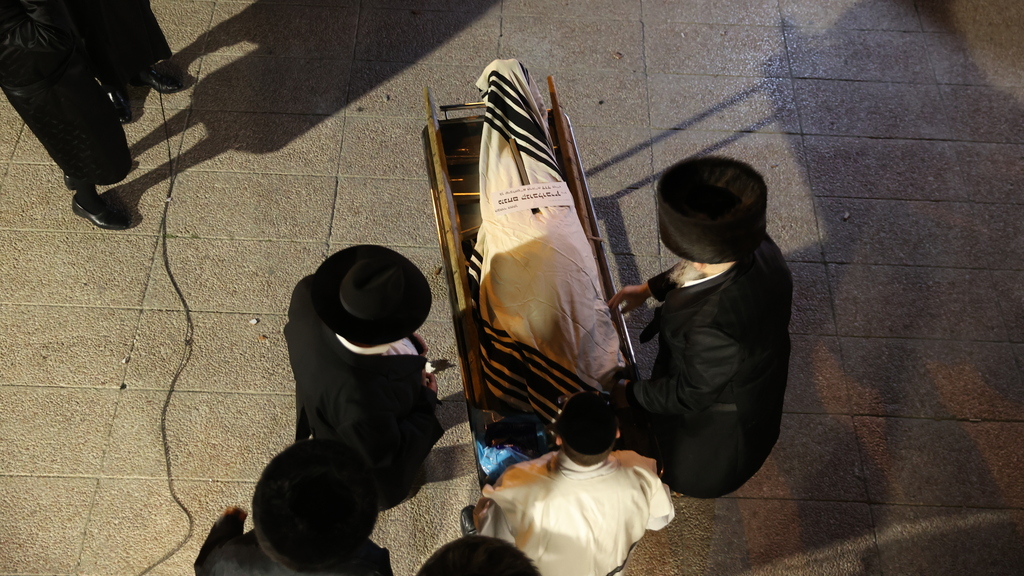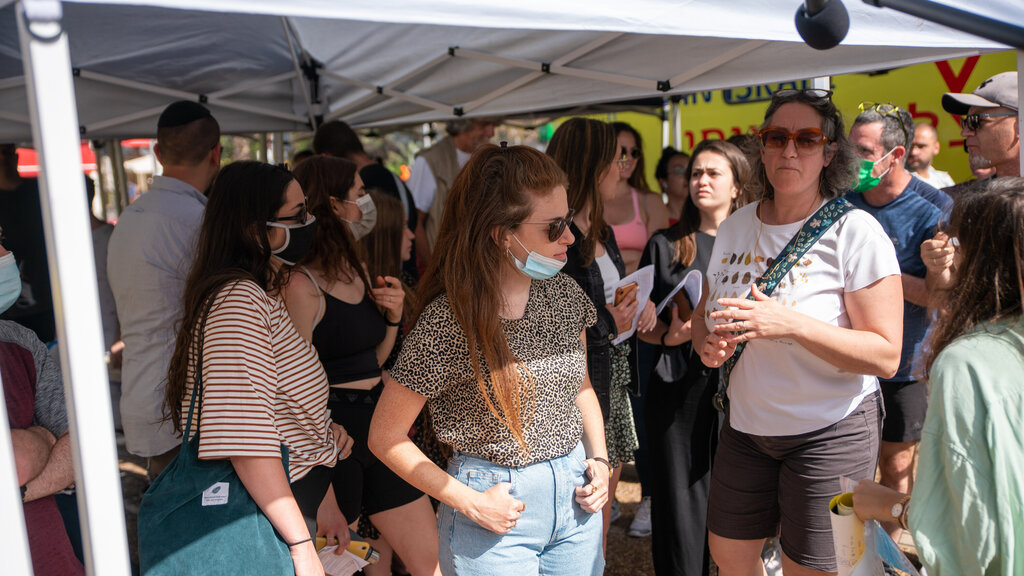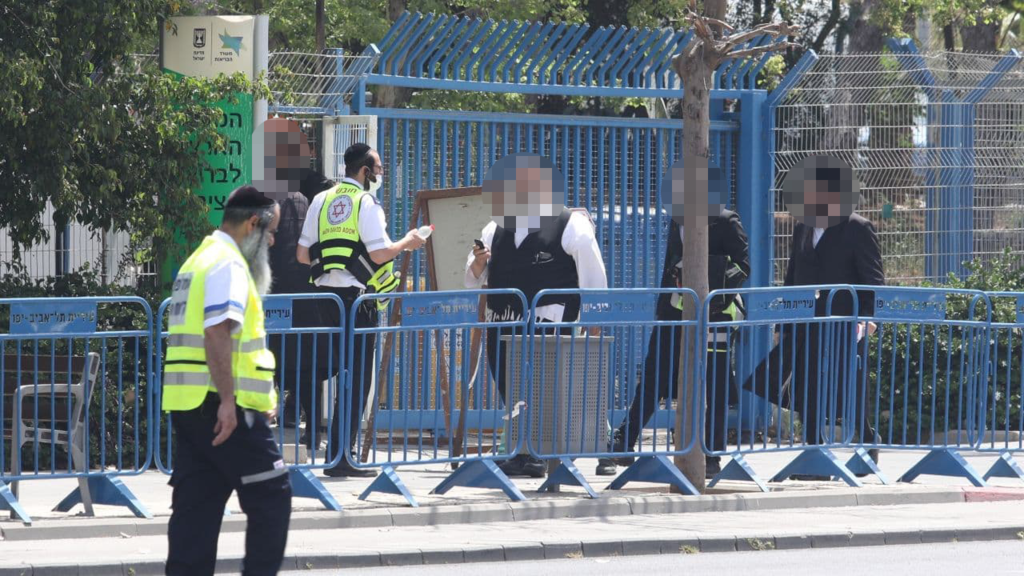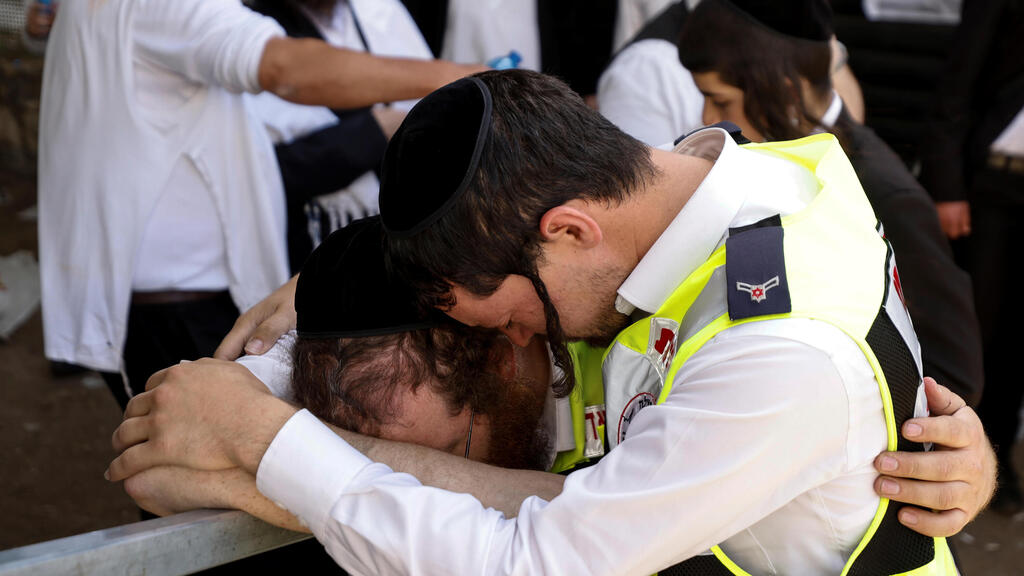Getting your Trinity Audio player ready...
The sage Rabbi Hanina, the vice-high priest in Prikei Avot, a compilation of the ethical teachings and maxims from Rabbinic Jewish tradition, once wrote about the importance of the authority of the state, saying that without it, "men would swallow each other alive".
The State of Israel in this day and age, however, appears to have removed itself from the authority over some sectors of the population. It relinquished its role to govern and allowed a Haredi autonomy to emerge. And in a place where there is no state law and no fear of authority - no one is safe.
On Thursday, during Lag BaOmer festivities on Mount Hermon, the price for this policy was exacted with the death of 45 soles.
But, the disaster was not the first to underline this lack of authority. It was the last in a succession of breakdowns of the government's authority over certain populations.
Just over the past year, during the coronavirus pandemic, police continuously failed to enforce Health Ministry orders in Haredi communities - where the infection rate was among the highest in the country - put in place to protect public health and prevent the spread of the virus.
In the face of unrelenting violence in the Arab sector, meanwhile, law enforcement proved unable to protect innocent citizens who fell victim to criminal elements ruling the streets.
4 View gallery


The funeral on Saturday of Menachem Kalmanovitch, who was among the 45 victims of the Meron disaster
(Photo: Amit Shaabi)
Even after the events on Mount Meron were over, after the dead and wounded were taken away, the police did not stop ultra-Orthodox celebrations on the mountain from continuing for the entire weekend.
In the aftermath of the disaster, Israelis celebrated the expressions of unity and empathy, shown by all sectors of society: secular Jews, Arabs and Druze, who mobilized to donate blood for the injured and lodging for the pious who were unable to return to their homes until Shabbat ended.
It takes disaster to unite Israelis, but those expressions of human kindness are to be expected and ordinary Israelis are not to blame for the disaster anyway. The government is.
4 View gallery


People line up on Friday in Tel Aviv to donate blood for those injured in the disaster in Meron
(Photo: Tal Shahar)
Governance and proper regulatory conduct are perceived as excessive burdens in Israel. A weight to be shed.
An especially poignant example so soon after the disaster was exhibited by Religious Zionist Party leader Bezalel Smotrich on Friday, when he called publicly for officials at Israel's Forensic Institute to release bodies for burial quickly. Families must be allowed to bury their dead before Shabbat, he said.
But just a few hours later, a family waiting to bury their young son found they were sent the wrong body. Regulations in Smotrich's view were excessive.
4 View gallery


Families of victims of the Meron disaster wait to hear if their relatives are among the dead outside the forensic Institute in Tel Aviv on Friday
(Photo: Dana Kopel)
Cutting corners is an Israeli trait, a plague haunting the country since its conception and on Thursday it resulted in 45 deaths.
This civilian disaster, the worst in Israel's 73 years, must results in a real debate on governance and responsibility. A conversation that must understand why the government relinquished its authority to religious institutions on Mount Meron and elsewhere.
An investigation only into the deficient infrastructure at the site of the disaster would mean Israel will be missing the point and the opportunity for real change.


